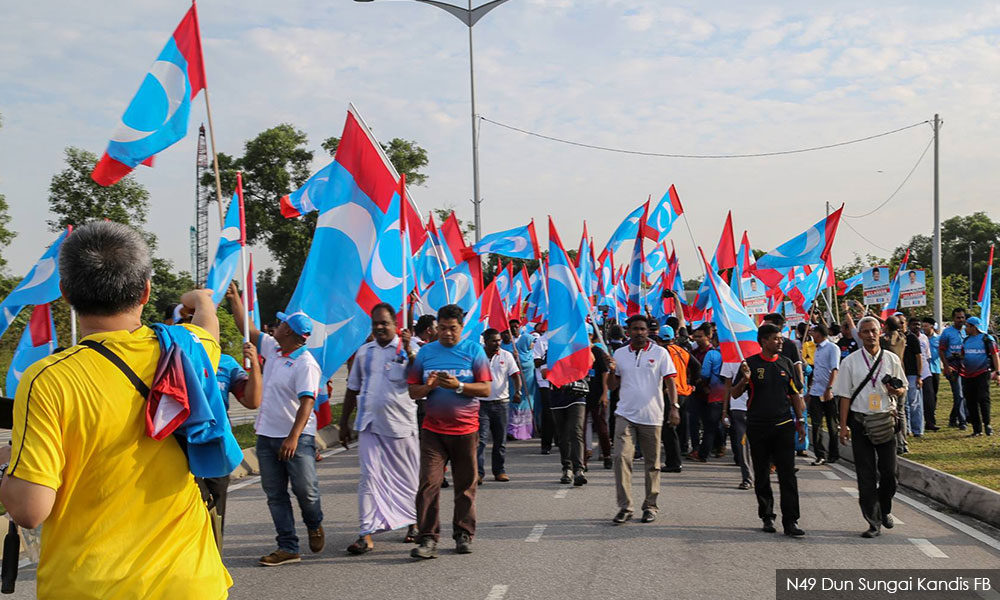Well, call me a racist but I am indeed a Malaysian first and Indian second. But let’s dive into the reality of things before we criticise Senator P. Waytha Moorthy’s move to launch a new race-based party called Malaysian Advancement Party (MAP).
I feel that at the moment, the Indian community needs an alternative to MIC who still has a lot of support from the grassroots Indians.
As a Malaysian Indian from the city, I was fortunate enough to have been exposed to all of the current issues in relation to the scandals of our former prime minister.
I could say that we need to move away from race-based political parties but deep down I know that it is not the case, given the current state of our country.
We have not reached the maturity level where political parties are formed based on an ideology, like in most European countries. Hence, race-based political parties are indeed relevant.
Let’s look at examples of the other such political parties in Malaysia.
We have Parti Pribumi Bersatu Malaysia, whose main goal is to defend Islam and Bumiputera while only offering second-tier membership for non-Bumis.
Bersatu’s strategy is definitely understandable because their target audience is the grassroots Bumiputera Malays and it was a move that was needed to shift support from Umno.
Next, there is DAP. Although they are multi-racial party but the majority of their members are Chinese and they have now become an alternative to MCA.
This was proven even further when the Harapan candidate from DAP for the Balakong by-election Wong Siew Ki trumped her MCA opponent Tan Chee Teong by a whopping 18,533 votes.
So what are the alternatives for the Indian community? PKR?
Well definitely not as once again PKR has the majority of members from the Malay community although it is also technically a multiracial party.

Looking at the political parties in Sarawak, most of them are home-grown meaning that they are locally based political parties that cater from a specific community just like in Sabah where there is Warisan that also caters to only local Sabahans.
We also have Parti Sosialisis Malaysia where majority of the members are Indians but it doesn’t seem to get the attention of the community and even myself due to its name itself.
For some, the word “sosialis” means working class but the taboo is that it could also be associated with communism. Hence it does not cater to the Indian community or the general Malaysian community as a whole.
Not forgetting Umno, MCA and MIC that are also race based since its founding, while PAS which is technically not race based since candidates from other races were represented in the last general election but a majority of the members are from one particular race or religion.
While most of our political parties are race-based, represented by one particular community or has a majority of one particular race groups and also secretly vouch for their own kind either knowingly or unknowingly (don’t tell me it does not happen because it does) the formation of MAP should be welcomed for the time being because while most Malaysians in the city root for multiracial parties, we should always remember that there are some communities in the grassroots that prefer a political party that fights for the rights of a particular race and religion.
Until we reach out to these communities about the meaning of being multiracial, race-based party would not become relevant in this country.
How do we expect to have a truly multiracial party when all our application forms are classified according to race or bangsa?
Racial profiling still clearly exists within our country's administration system and here we are talking about accepting a multiracial party.
The day when political parties in Malaysia genuinely fight for the interest of all Malaysians regardless of race and religion is when we will become a nation ready for a truly Malaysian political party.
The writer is a research assistant with Asia-Europe Institute in Universiti Malaya.
The views expressed here are those of the author/contributor and do not necessarily represent the views of Malaysiakini.

